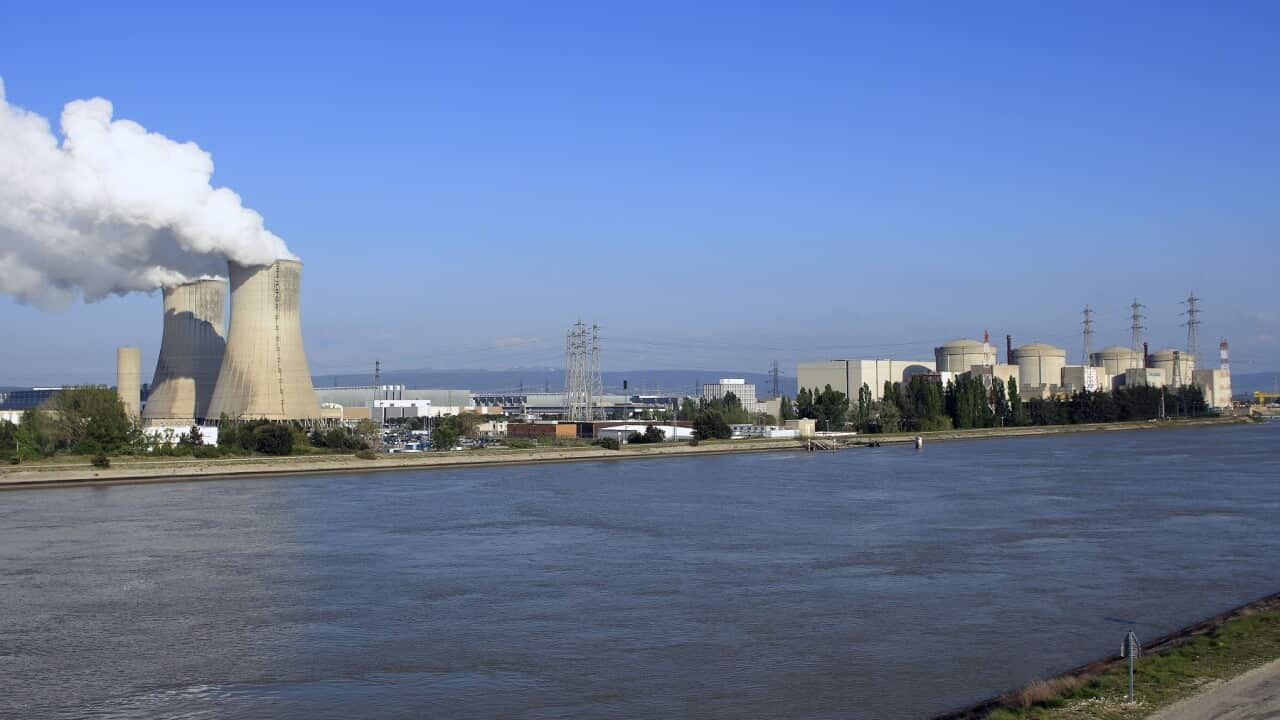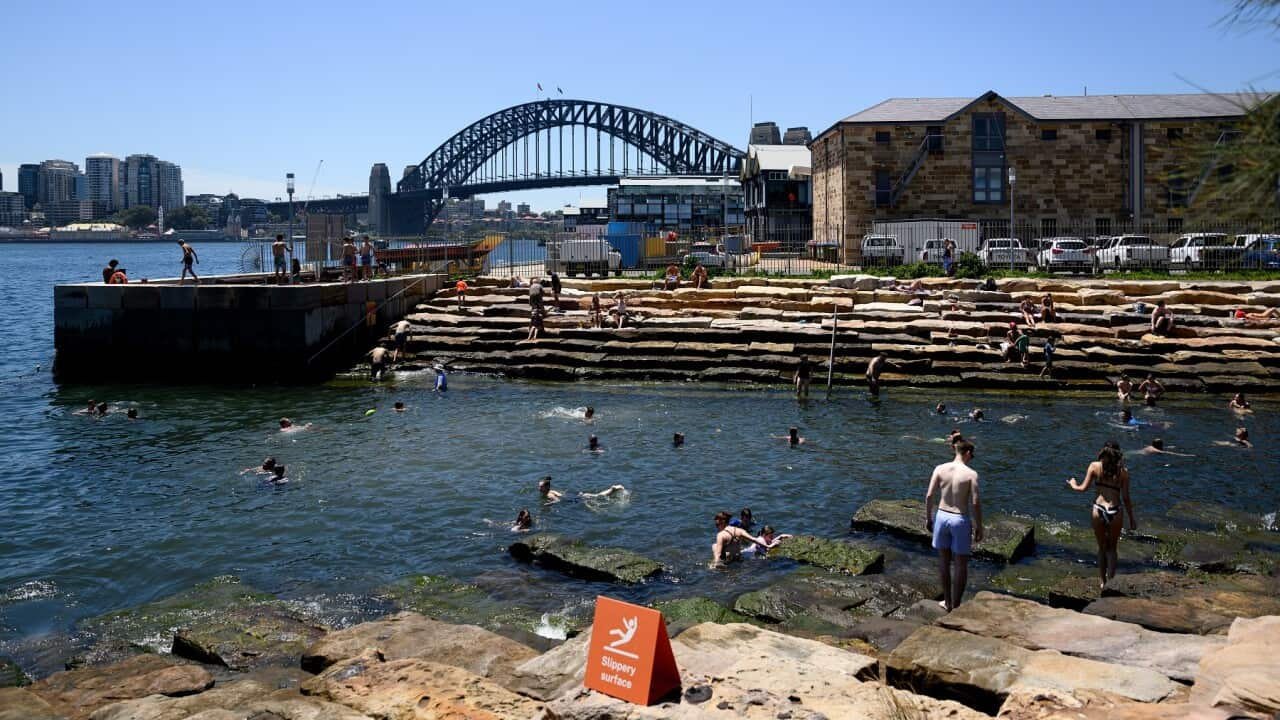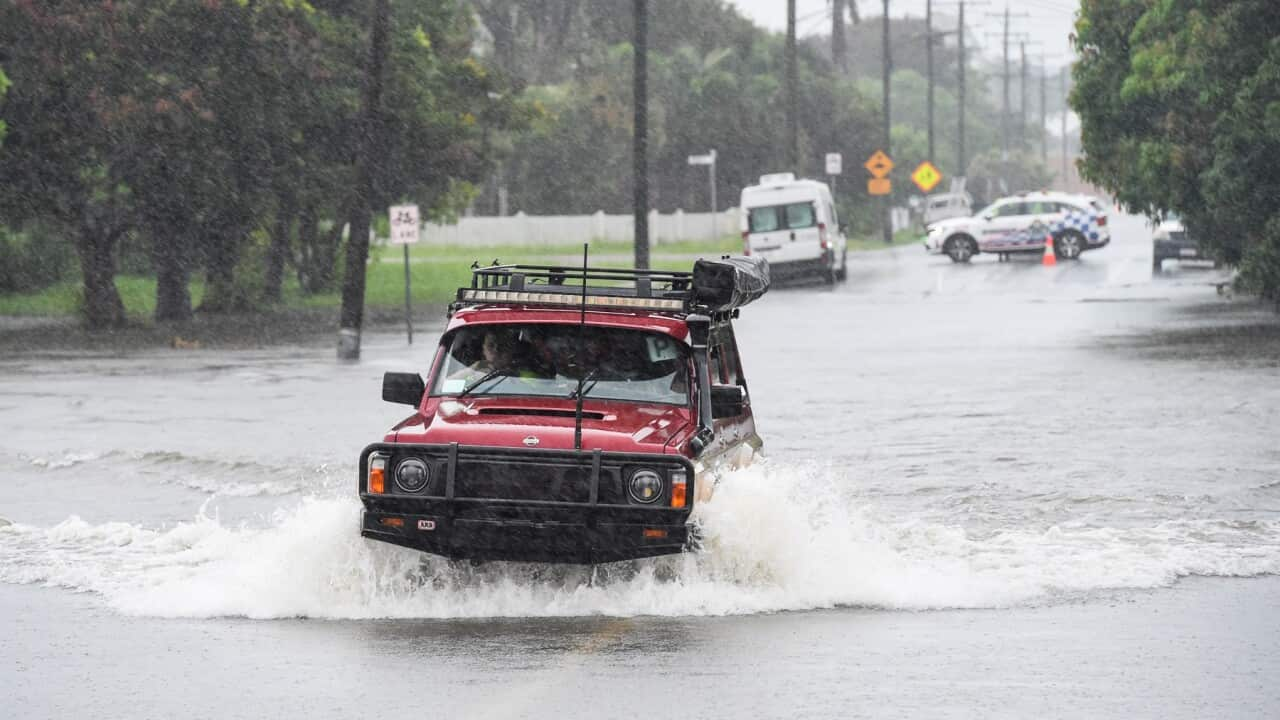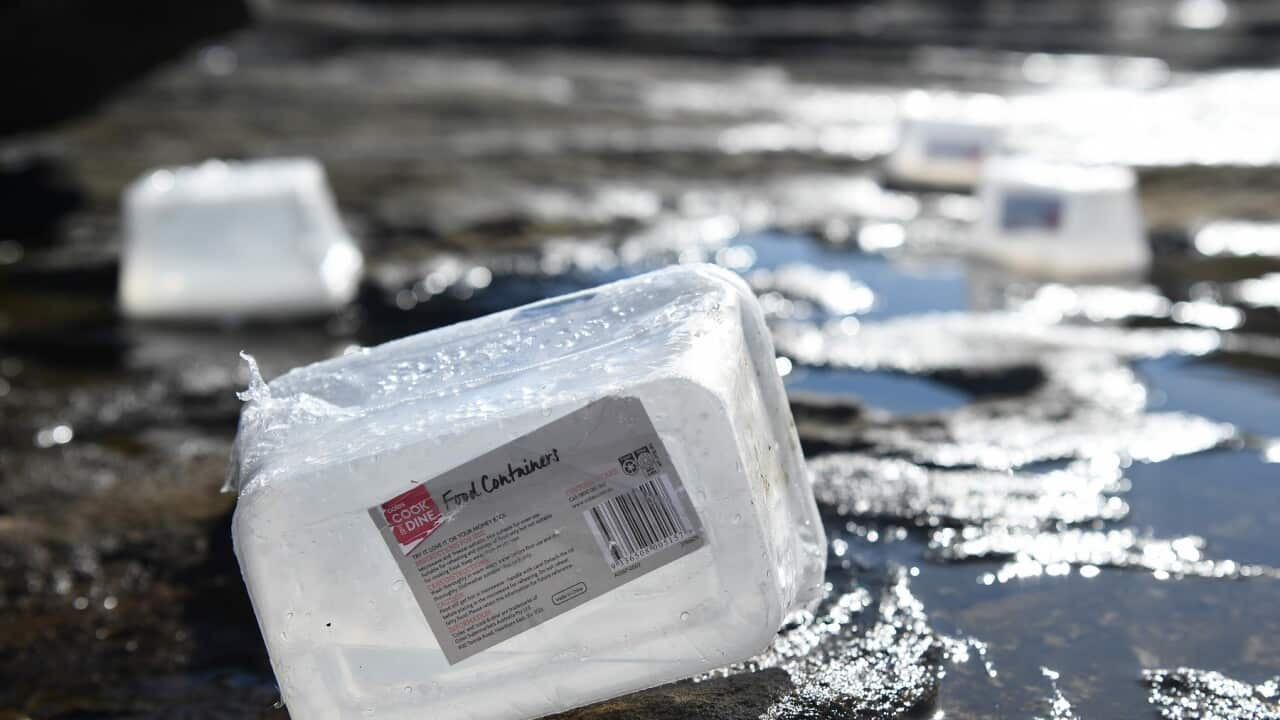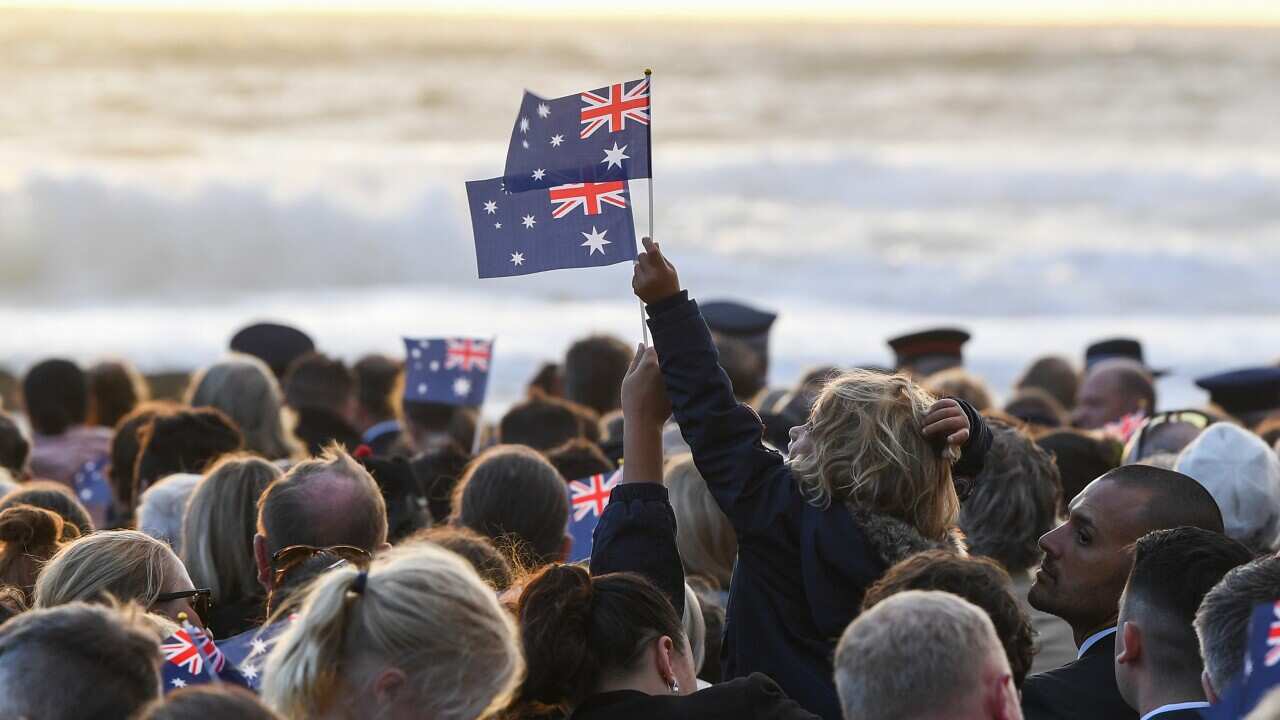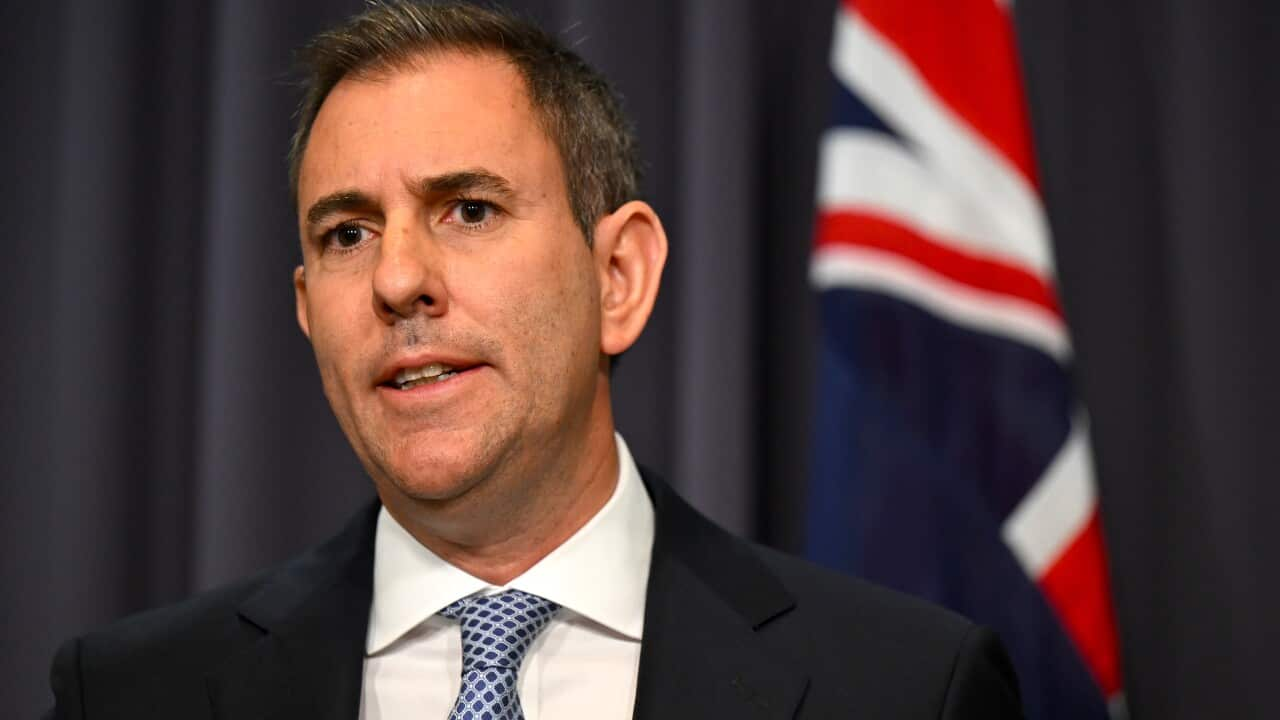TRANSCRIPT
After months of speculation, Peter Dutton has released the first details of the Coalition's nuclear energy plan.
"I want to make sure that the Australian public understands today that we have a vision for our country to deliver cleaner electricity, cheaper electricity, and consistent electricity."
Seven sites have been identified to house reactors - Tarong and Callide in Queensland, Liddel and Mount Piper in New South Wales, Port Augusta in South Australia, Loy Yang in Victoria, and Muja in Western Australia.
They are all sites of end-of-life coal fired power stations, which Mr Dutton says is key to the proposal.
"We want to utilise the existing assets that we've got. And the poles and wires that are used at a moment on the coal-fired power station sites can be utilised to distribute the energy generated from the latest generation nuclear reactors."
Energy Minister Chris Bowen says the announcement lacks detail.
"The Liberal and National parties, having promised an energy policy, released a list of sites with no costs, no details, no modelling, and they couldn't even release the number of gigawatts or megawatts that will be added to the energy system as a result of this policy. And they can't even confirm that these details will be released before an election, not after."
Mr Dutton says costings for nuclear power are to come, but insists it'll be cheaper than Labor's renewables plan.
"Our proposal will cost a fraction of that, we'll have more to say in relation to the cost in due course and as you know we've done this in a step-by-step process. The focus today is on the sites."
Treasurer Jim Chalmers is dubious.
"Nuclear takes longer, it costs more, and it would waste Australia’s unique combination of geological, geographical, geopolitical and meteorological advantages. It might be the dumbest policy ever put forward by a major political party. It is the worst combination of economic and ideological stupidity."
Opposition energy spokesperson Ted O'Brien says Australia is nuclear-ready.
"Australia already is a nuclear nation. We know that nuclear technology saves lives. We know that because we have a nuclear reactor operating here in Sydney, it's been operating for decades, saving lives, especially diagnosing and treating cancers. Technology we know that also protects lives. Through the AUKUS deal with United States and United Kingdom, Australia will have nuclear-propelled submarines."
But there are barriers to adding nuclear production to Australia's energy mix.
There's a moratorium on nuclear power which would need be lifted, requiring both houses of parliament to vote in favour of the plan.
Even if the Coalition was in government, it's unlikely they would control the Senate.
Finding support on the crossbench may be challenging, with Greens leader Adam Bandt signalling the party is against the plan.
"Peter Dutton can talk about nuclear as much as he likes, but it's not going to happen. If I wanted to tune into a fantasy I'd watch Lord of the Rings."
State governments would have to get on board too, with legislated bans on nuclear power in New South Vales, Victoria, and Queensland.
The Coalition says the first reactor would be ready by 2035, five years sooner than the CSIRO says a plant could be built.
Chief Executive of the Smart Energy Council John Grimes says it's an unlikely timeline.
"In the United States, the most recent big nuclear power plant to be built took 18 years from the date of announcement until the date of commissioning. That is in the country that invented nuclear technology. So let's say we can actually do it as quickly as the Americans, people who have been doing it for decades. And let's also be generous, say it takes five years to actually change the law in every state and federally to allow this to happen. Then friends, we're talking about an operational date for the very first, very optimistic, nuclear power plant in Australia of 2047."
Under the Coalition plan, the reactors would be owned by the Commonwealth, and the federal government would need to acquire the sites.
Energy Minister Chris Bowen says that's just the first issue for the Coalition.
"Of the seven proposed sites, on six of the locations, the owners aren't interested in hosting a nuclear power plant. In six out of the seven sites the owners have said they won't have it. So this policy fails at the first hurdle."
But Nationals leader David Littleproud says Australians are keen to own some of the nation's energy network once again.
"A vision for our country where Australians will once again own some of their generation of power in this country. It is about a vision for regional Australia, one that is not covered in solar panels and wind turbines and transmission lines."
